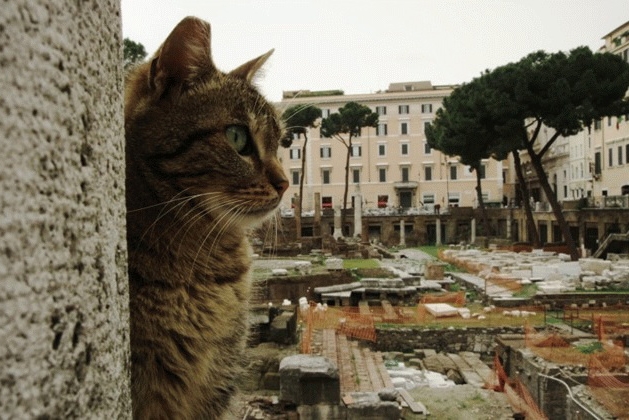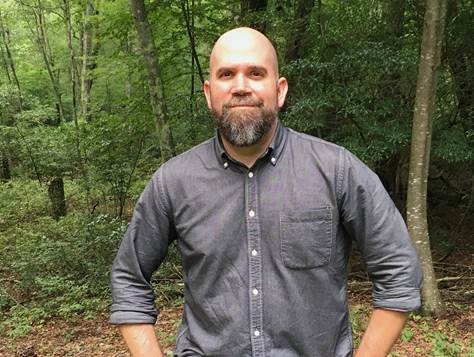Past Events
Interested in Cotsen events? Sign up for our mailing list.An Ahmanson lecture, co-sponsored by the Cotsen Institute of Archaeology and in recognition of International Archaeology Day, will be on Saturday, October 20th at 2PM at the Fowler Museum Room A222 at UCLA. David Lee, an independent scholar, will present “Pictures of the Past: Introduction to the Rock Art of Western North America”
Contact
Phone
Save the Date!
Urban Animals Past
and Present
Graduate Student Workshop
and Public Lectures
Saturday October 20, 2018
UCLA La Kretz Garden
Pavilion
Cities are full of animals: wild and domestic, tame and feral. In this workshop, we will focus
on all of the ways that animals exist within human urban ecosystems as sources of food,
companionship, and aesthetic pleasure, and how animals also act as scavengers, nutrient
recyclers, and vectors for the transmission of diseases such as plague, rabies, and monkeypox.
Given the global and rapid pace of urbanization, these phenomena constitute a critical
component of urban studies as well as animal management strategies.
Schedule
9:00-12:00
Graduate student presentations (if you would like to participate, please submit a five-page,
double-spaced summary of your dissertation research no later than October 1, 2018)
Lunch break
2:00-5:00
Public presentations by
Judy Stamps (University of California, Davis)
Levent Atici (University of Nevada-Las Vegas)
Ian MacGregor-Fors (INECOL Institute of Ecology, Veracruz, Mexico)
Reception to follow
For further details please contact co-organizers
Monica L. Smith (smith@anthro.ucla.edu) and Pamela Yeh (pamelayeh@ucla.edu)
Sponsored by:
UCLA Cotsen Institute of Archaeology, UCLA Department of Anthropology,
UCLA Department of Ecology and Evolutionary Biology, Navin and Pratima Doshi Chair in Indian Studies
UCLA Mildred E. Mathias Botanical Garden, UCLA Department of Urban Planning
Contact
Email smith@anthro.ucla.edu
Phone
Urban Animals Past and Present
Graduate Student Workshop and Public Lectures
Saturday October 20, 2018
UCLA La Kretz Garden
Pavilion

Cities are full of animals: wild and domestic, tame and feral. In this workshop, we will focus on all of the ways that animals exist within human urban ecosystems as sources of food, companionship, and aesthetic pleasure, and how animals also act as scavengers, nutrient recyclers, and vectors for the transmission of diseases such as plague, rabies, and monkeypox. Given the global and rapid pace of urbanization, these phenomena constitute a critical component of urban studies as well as animal management strategies.
Schedule
9:00-12:00 Graduate student presentations (if you would like to participate, please submit a five-page,
double-spaced summary of your dissertation research no later than October 1, 2018)
Lunch break
2:00-5:00 Public presentations by
Judy Stamps (University of California, Davis)
Levent Atici (University of Nevada-Las Vegas)
Ian MacGregor-Fors (INECOL Institute of Ecology, Veracruz, Mexico)
Reception to follow
For further details please contact co-organizers
Monica L. Smith (smith@anthro.ucla.edu) and Pamela Yeh (pamelayeh@ucla.edu)
Sponsored by:
UCLA Cotsen Institute of Archaeology, UCLA Department of Anthropology,
UCLA Department of Ecology and Evolutionary Biology, Navin and Pratima Doshi Chair in Indian Studies
UCLA Mildred E. Mathias Botanical Garden, UCLA Department of Urban Planning
Contact Monica L. Smith and Pamela Yeh
Email smith@anthro.ucla.edu & pamelayeh@ucla.edu
Phone
Dr. Levent Atici, Associate Professor, University of Nevada, Las Vegas
The revolutionary socioeconomic transformation of societies from foraging to farming in Southwest Asia shortly after 10,000 calibrated years BC and the subsequent spread of emergent agropastoral lifeways across Anatolia and into Southeast Europe (a.k.a., Neolithization) have been one of the most ruminated topics in archaeology. Recent archaeological research in Anatolia have greatly contributed to a better understanding of the origins and dispersal of agricultural economies. Körtik Tepe is a Pre-Pottery Neolithic A (PPNA; 10th millennium B.C.) complex forager site in the Upper Tigris Valley with a well-dated stratigraphy, hundreds of human burials, hundreds of round architectural structures, and a highly sophisticated symbolism. Uğurlu Höyük is a Neolithic settlement on Gökçeada, the largest Turkish island situated between Anatolia and the European continent in the Aegean Sea, and currently the only site with an early Neolithic component (ca. 7000 cal BC) in the eastern Aegean. This talk combines the results of zooarchaeological research at two Anatolian sites, representing two distinct points on the animal exploitation continuum, and offers new insights into the origins and dispersal of domesticated animals in SW Asia and adjacent areas.
Contact Sumiji Takahashi
Email sutakahashi@ioa.ucla.edu
Phone 310-825-4169
The Bubasteion and its New Kingdom Tombs at Saqqara. Results and Challenges.
Dr. Alain Zivie, Director, French Archaeological Mission of the Bubasteionat Saqqara
Contact
Email sutakahashi@ioa.ucla.edu
Phone 310-825-4169
Dr. Austin Nevin
CNR Researcher, Politecnico Milano
Binding media, metals and pigments in works of art are material history - and are evidence of technology, artist practice, exchange and trade. Through the study and identification of materials, crucial data can be collected regarding physical and chemical stability thus informing conservation decisions. Three case studies of works of art and archaeological materials will draw on current research using portable instrumentation and cutting-edge analytical methods. Investigations on wall painting fragments from the ancient Canannite capital Tel Kabri allowed the identification of degraded binding media from the Aegean style wall paintings that date to the 18th C. B.C.E. The discovery of traces of organic media in the characteristic blue paint is significant for the conservation and treatment of the paintings, for understanding of the sophistication of painting practise and the use of egg-based binding media in the Eastern Mediterranean, and more broadly also questions the presence of domestic animals in the region. The second case study focuses on Tutenkhamun’s dagger that was analyzed using portable instrumentation at the Egyptian Museum in Cairo. New data established conclusively that the well-conserved ornamental blade was fashioned from finely worked meteoritic iron. The identification was possible though the comparison of data acquired from the dagger with known meteor samples, and the calculation of ratios of Nickel and Cobalt. Organic red lake pigments are the focus of the third case study. Analysis demonstrates how deep crimson pigments from European insects were adopted by Leonardo in the Last Supper, and how, by contrast, Veronese adopted newly introduced Mexican pigments from cochineal insects. The molecular characterization of cross-sections demonstrate the use of similar kermes-based lakes in paintings by Leonardo and Masolino, and carmine-based reds in paintings by Tintoretto and Veronese, while also revealing soluble uncomplexed dyes in samples that has direct implications for conservation, cleaning and lighting. Research will ultimately demonstrate the benefits of synergistic collaborative studies across disciplines.
Contact Sumiji Takahashi
Phone 310-825-4169
Since our humble beginnings, human’s have created and discarded unwanted objects: garbage is a human universal, and the archaeological record is brimming with it. Indeed, the everyday human experience – the routine domestic tasks we perform, the foods we process and eat, the goods we consume – is arguably best documented with our discards. Rarely glorified and difficult to romanticize, trash can challenge the dominant historical narrative, give voice to those without, and complicate our understandings of quotidian behavior. But an archaeology of trash is also situated to foster unique and often impactful perspectives on the ways that consumption and discard practices – both normative and fringe – implicate a myriad of phenomena not always easily gleaned from curated possessions, including ideologies of dissent, socially performed identities, dispossession, and ecological toxicity. Secretly aspiring to deepen your appreciation and awareness of garbage, this talk explores the curiously unpopular but promising fusion of archaeology and discard studies.
Harry and Yvonne Lenart Auditorium at the Fowler Museum, UCLA
6:00 pm, Thursday, October 11, 2018
With a reception in the Fowler Museum Courtyard to follow
RSVP by Friday, October 5, to Kelli O'Leary at koleary@support.ucla.edu

Anthony Graesch
Associate Professor of Anthropology
Chair of the Anthropology Department
Connecticut College
This event is co-sponsored by:
Director Willeke Wendrich, UCLA Cotsen Institute of Archaeology and The Institute for Field Research
Contact Tanja Hrast
Email tanja@ioa.ucla.edu
Phone
Dr. Henner von Hesberg, Visiting Scholar, Getty Villa
Fragments of the imitations of smaller buildings are known from different sites in archaic Selinunte: the agora, the sanctuary of Demeter and from the acropolis. They can be reconstructed in three different types, or as a sort of open or closed box, or as a small temple with columns. The dating is possible in one part from the context, f.i. in the agora, where there are mainly strata from the archaic period until the end of the 5th century (destruction by the Carthagians). The main problem is the function. There is no doubt they are votives, but what kind do we have to consider? Interesting in the configuration of the models is the use of elements of the Doric order to express a special sort of monumentality.
Contact Sumiji Takahashi
Email sutakahashi@ioa.ucla.edu
Phone 310-825-4169
The Annual AIA Los Angeles County Society Fall Garden Party will be in the amphiteater
at the Fowler Museum on the UCLA campus on Sunday, October 7th from 2-4pm. After
refreshments and conversation we will move into Fowler A222 to hear reports from our two 2018
Field School Scholarship awardees: Alexander Lin and Samantha Stott both of USC. Aaron Burke
and I will both present updates on our excavations as well. Please RSVP to Kristina Reed
(kristina.s.reed@gmail.com) to reserve your place.
Contact Kristina Reed
Email kristina.s.reed@gmail.com
Phone
Speaker: Dr. Travis Stanton, Professor, Department of Anthropology, UC Riverside
Contact Sumiji Takahashi
Email sutakahashi@ioa.ucla.edu
Phone 310-825-4169
- ‹ previous
- 31 of 50
- next ›


